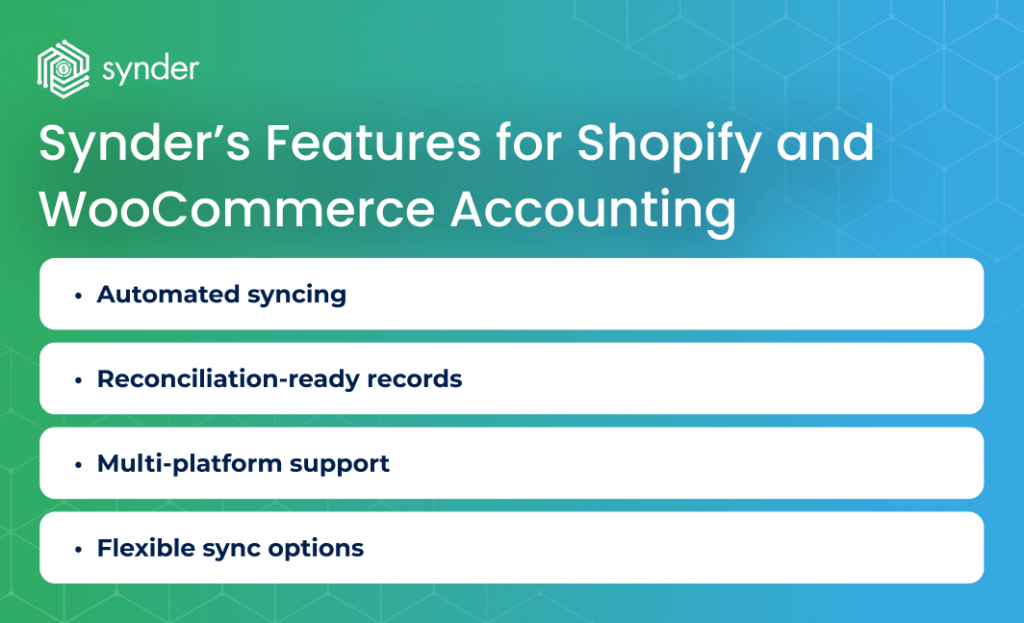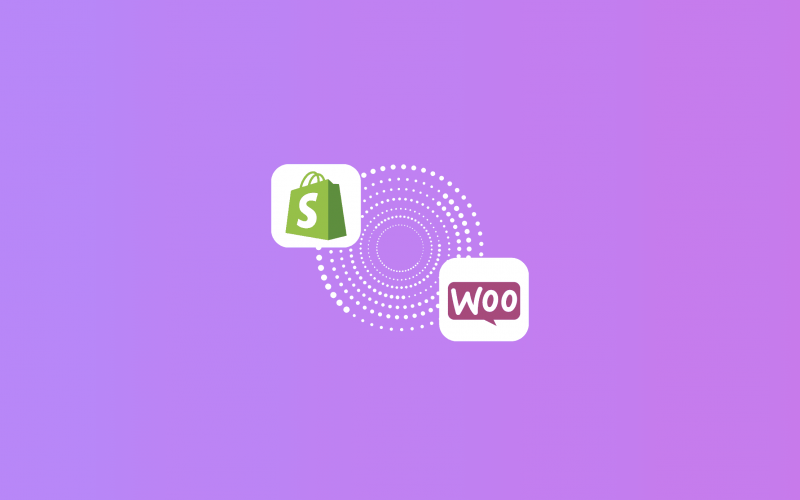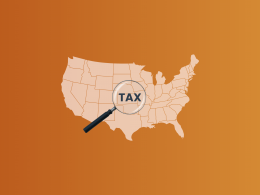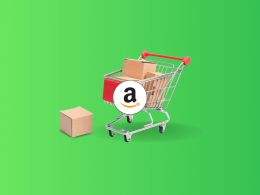If you’re managing an ecommerce business with QuickBooks Desktop as your accounting system, syncing your sales data accurately is critical for clean books and confident decisions. While both Shopify and WooCommerce can be linked to QuickBooks Desktop, neither platform connects directly, at least not without help. That’s where integration software like Synder steps in, offering a clear, automated way to sync your ecommerce activity with your accounting system.
Comparing Shopify and WooCommerce for QuickBooks Desktop integration
Let’s break down how each platform connects to QuickBooks Desktop, and how to make that connection reliable and efficient.
Shopify QuickBooks Desktop integration
Shopify doesn’t offer a direct integration with QuickBooks Desktop, which means many users are left manually exporting data or relying on clunky workarounds. This often leads to errors, missed transactions, and time-consuming reconciliation, especially when trying to match Shopify sales, taxes, fees, and refunds to your accounting records.
Synder solves this by automating the entire sync process between Shopify and QuickBooks Desktop. It imports every transaction with full detail, categorizes it accurately, and matches Shopify payouts to actual bank deposits. The result? Clean, compliant books and faster, more reliable month-end close.
WooCommerce QuickBooks Desktop integration
WooCommerce doesn’t offer a built-in integration with QuickBooks Desktop either, leaving many users to deal with manual exports or unreliable plugins. This often results in inconsistent data, formatting issues, and tedious reconciliation work, especially when trying to align WooCommerce sales, fees, taxes, and refunds with your accounting records.
Synder’s WooCommerce QuickBooks Desktop integration brings this in order by organizing WooCommerce data before it ever reaches the books. Whether you prefer detailed per transaction entries or daily summaries, Synder ensures that every sale, fee, and tax is captured accurately and posted to the correct accounts, minimizing manual adjustments and ensuring smoother financial workflows.
Where Synder makes the difference
If you’re using Shopify, WooCommerce, or both, Synder brings structure to your accounting process:

- Automated syncing: Sales, fees, taxes, shipping, and refunds are recorded without manual entry.
- Reconciliation-ready records: Synder connects your ecommerce payouts with actual bank activity, helping you match transactions accurately.
- Multi-platform support: Selling across different stores or channels? Synder supports over 30 integrations and keeps it all consistent inside QuickBooks Desktop.
- Flexible sync options: Choose whether to sync each order individually or post daily summaries—whatever fits your workflow.
You don’t need to adapt your business to fit your accounting software. With Synder, your integration works around the way you already sell and report. Sign up for a 15-day free trial to test it yourself or join a 1-1 demo for a tour guided by a Synder’s expert.
FAQ
What are the main challenges of integrating Shopify with QuickBooks Desktop?
Shopify doesn’t integrate with QuickBooks Desktop out of the box. Without a tool like Synder, you’re stuck with manual exports or spreadsheets that don’t capture the full picture, especially when it comes to fees and multi-channel activity.
Is WooCommerce easier to integrate with QuickBooks Desktop compared to Shopify?
Not necessarily. WooCommerce gives you more control, but that can come with complications depending on how your store is set up. Both platforms benefit from automation tools that can structure the data before syncing.
How does Synder improve the integration process with QuickBooks Desktop?
Synder handles the entire sync for you—importing detailed transactions, linking payouts to deposits, and giving you control over how the data is recorded. It’s designed to reduce manual work while keeping your books accurate.
Can I use Synder with multiple ecommerce platforms at the same time?
Yes. Synder lets you sync data from Shopify, WooCommerce, Amazon, Stripe, and 30+ other platforms—all into the same QuickBooks Desktop file.
Does Synder support syncing historical transactions?
Yes, Synder can sync past transactions if you need to migrate data or fill in gaps. This service is available for an additional fee and may be subject to limitations based on the connected platform’s data access policies.






